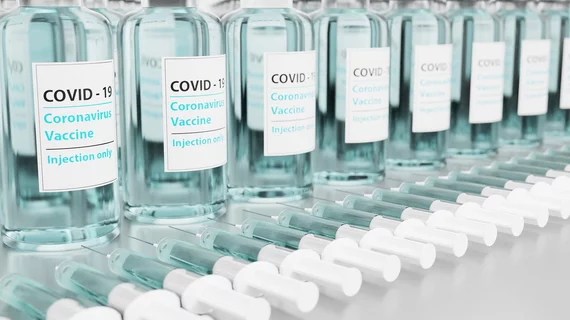COVID-19 vaccinations prevent infections among healthcare workers
Becoming infected with COVID-19 is unlikely once a person has been vaccinated, according to a study published in the New England Journal of Medicine.
Researchers examined more than 8,000 vaccinated adults employed at the University of Texas Southwestern Medical Center in Dallas. Only four of the group became infected with COVID-19.
The findings reveal good news for tamping down the spread of the COVID-19 pandemic as the nation’s vaccination program continues to roll out. However, other recent studies show challenges when it comes to getting the healthcare workforce vaccinated, with a significant portion of workers feeling skeptical about the effectiveness and safety of the vaccines.
“The effect of vaccination on the preservation of our workforce has been dramatic,” wrote first author William Daniel, MD, of the medical center, et al. “We observed a greater than 90% decrease in the number of employees who are either in isolation or quarantine.”
Similarly, another study on infection rates among vaccinated staffers at Los Angeles hospitals revealed just seven of nearly 15,000 contracted COVID-19. The study was also published in NEJM.
“In our cohort, the absolute risk of testing positive for SARS-CoV-2 after vaccination was 1.19% among health care workers at [University of California San Diego Health] and 0.97% among those at [David Geffen School of Medicine at University of California, Los Angeles],” wrote first author Jocelyn Keehner, MD, of UCSD, and colleagues.

